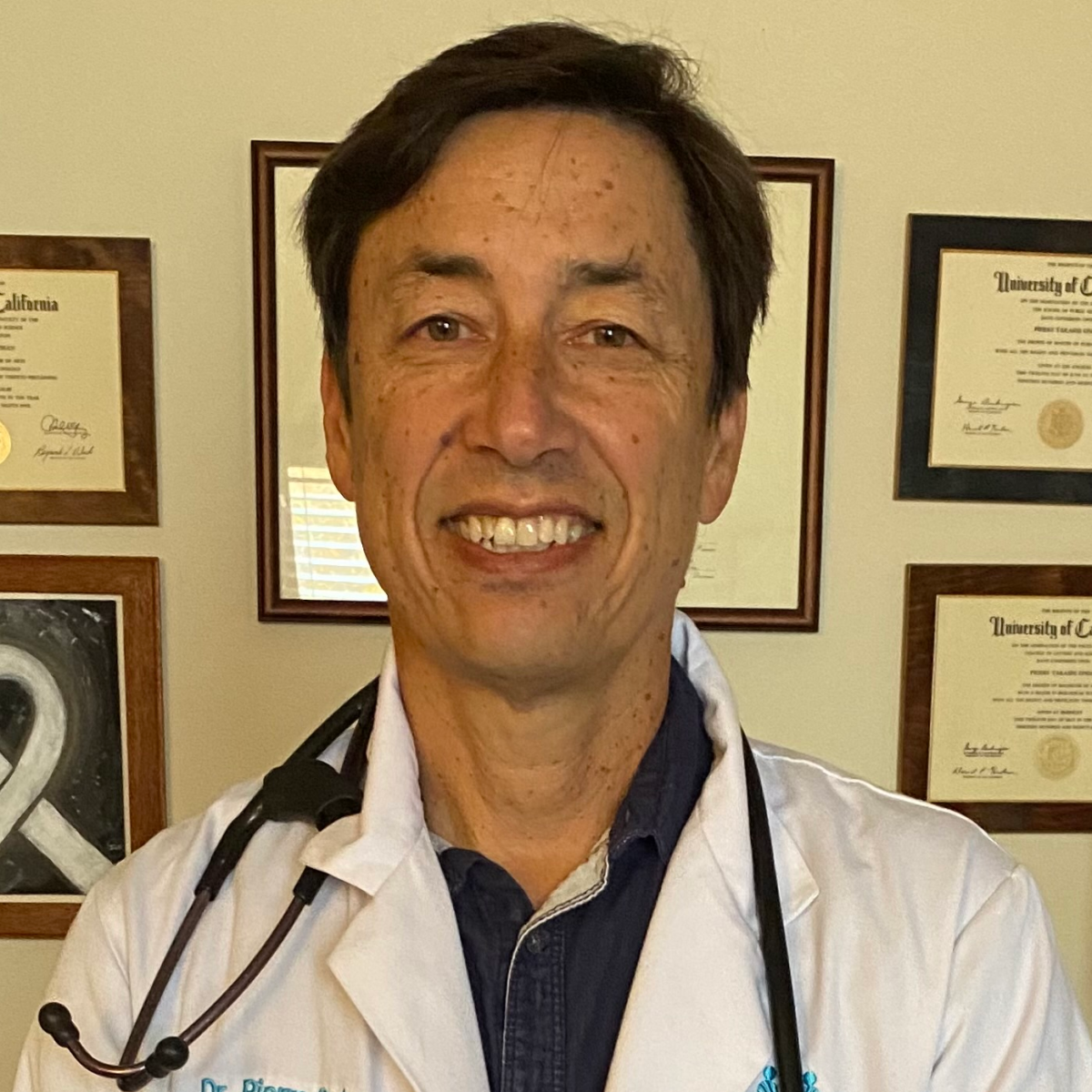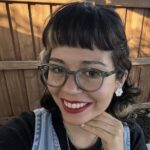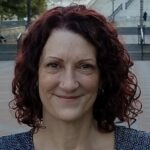The White Ribbon Project Stories
Pierre Onda:
The Caregiver & His Fight for Empathy
Story 4 of The White Ribbon Project Stories
The love Pierre and Heidi Onda have for each other runs deep — 42 years deep.
‘The thought about not having her with me, you know, those thoughts creep up,’ Pierre admits.
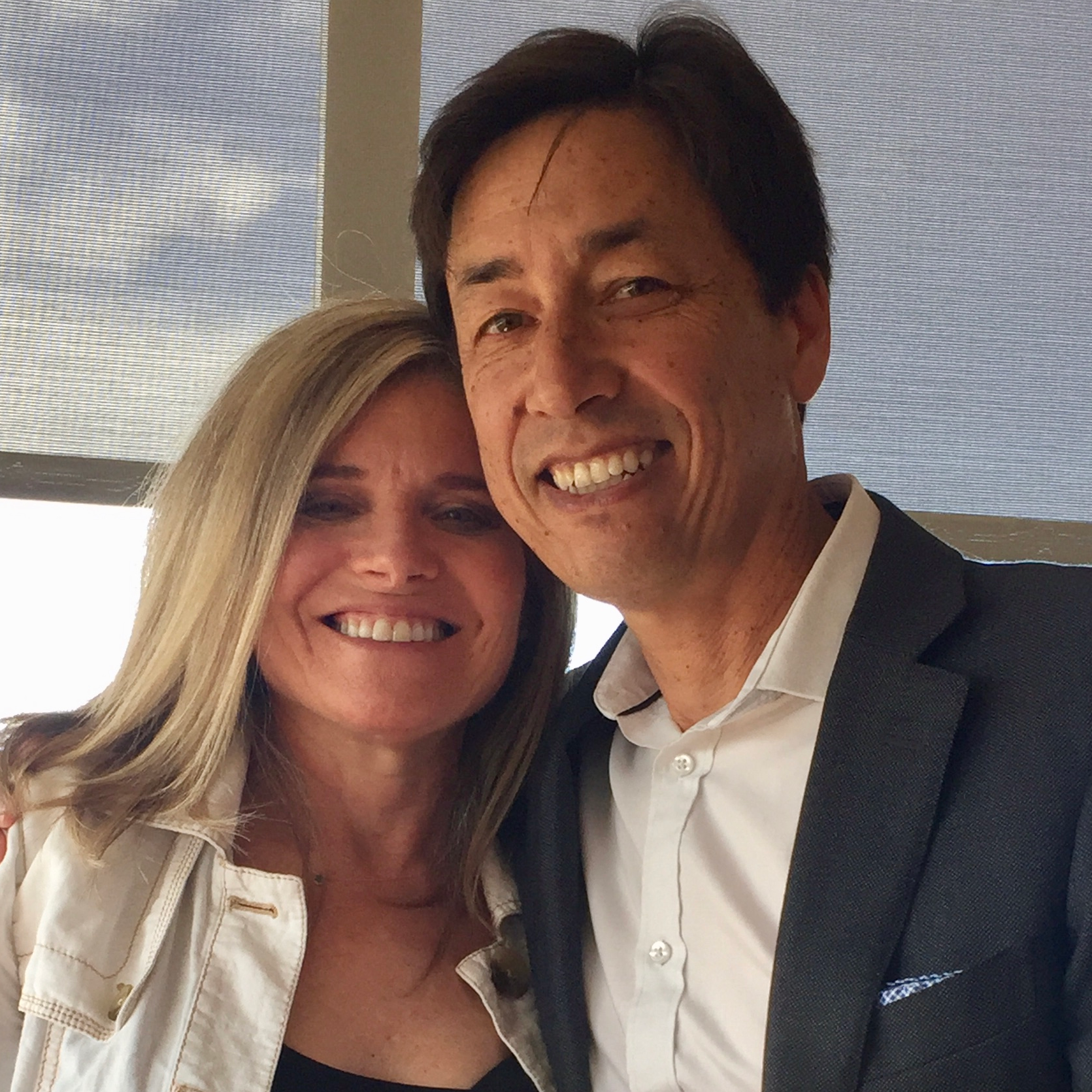
A couple years ago, Heidi underwent a CT scan for an ovarian cyst. Thankfully, it was benign.
But her doctor needed to talk to her about something else. When he couldn’t find her, he turned to Pierre, who was a primary care physician at the time.
“When I read the report, there was no question that she had some type of advanced cancer and it looked like it was a primary lung cancer, ” describes Pierre. “I just had this immediate period of disbelief. And for me, this utter feeling of despair and terror that I was going to have to tell her that I knew this information before she knew it.”
Like most cancer diagnoses, this one took the pair by surprise, but it was especially hard to grapple with. Heidi has always been passionate about health and wellness, for not just herself, but for others as a health educator and trainer.
So she was stunned by the stage 3 lung cancer diagnosis. The news crippled the entire family.
Especially Pierre.
“As a caregiver it is mostly me managing my own anxieties and fears and the thought about…thought about not having her with me with me…”
Pierre says things have gotten somewhat easier as he’s learned coping mechanisms. “I’m much better at that now. And there were times initially where I would just, you know, break down.”
In trying to build themselves back up, Pierre and Heidi grew their lung cancer community through a grassroots campaign called “The White Ribbon Project.”

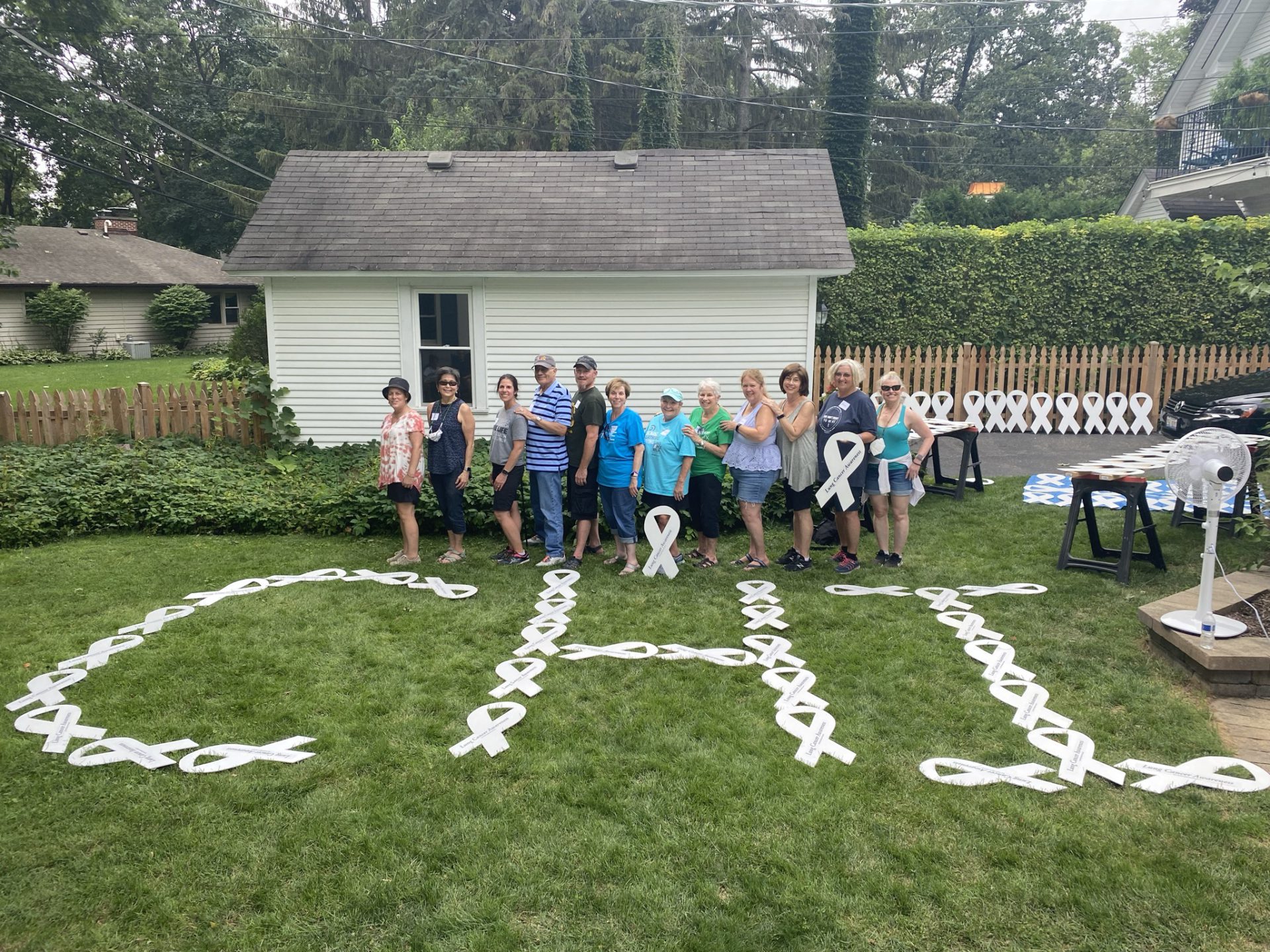
Heidi wanted to show something that would tell the world she was proud of representing herself as part of the lung cancer community. So Pierre got to work in his garage and created a wooden white ribbon. Their daughter helped figure out the lettering across the ribbon, and that’s how the original white ribbon in the project was born.
The wooden white ribbons invite people to be a part of their community and to claim that lung cancer is their story, including lung cancer patients with a history of smoking.
As a doctor who has met countless people who smoked and ended up with a lung cancer diagnosis, Pierre is fighting for more empathy.
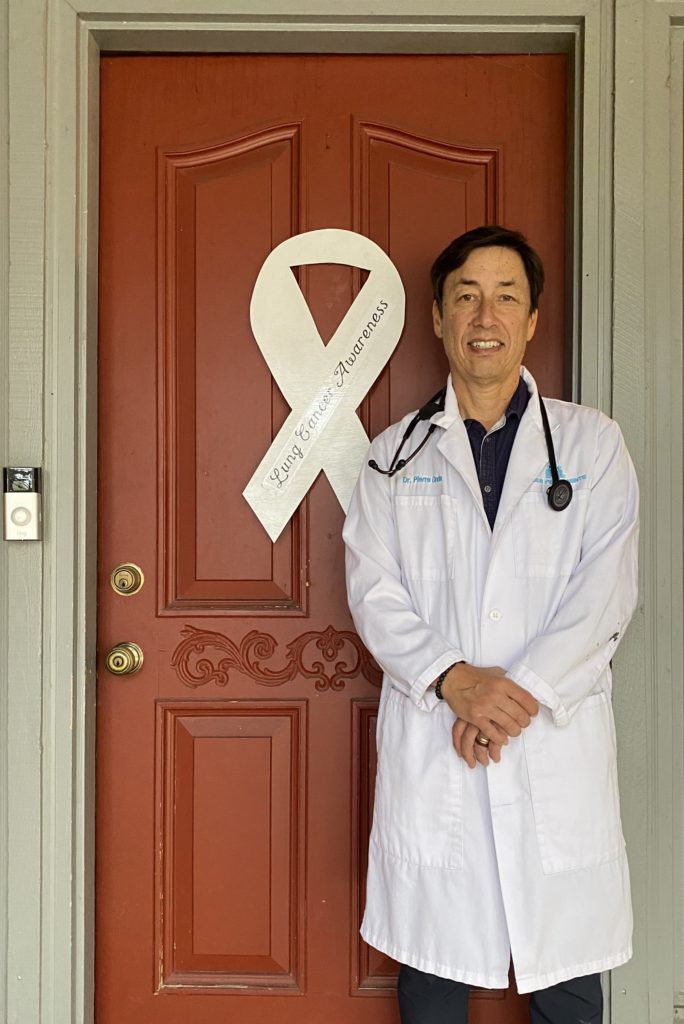
“Someone who doesn’t exercise or overeats or smokes, we assume that’s completely within their control. And the reality is, and what I’ve learned over time is that, you know what, it’s not,” he explains. “There are so many factors, both psychologically, physiologic, and other variables that are not under control that affect the choices that they make.
Therefore, to blame them for certain lifestyle choices they make really does a disservice.
A disservice that could cost people their lives if they don’t get screened. Pierre has guidance for his peers on how they can help save lives.
Lives like Heidi’s.
“Primary care physicians most likely have a bias that makes them perhaps less aggressive at pursuing screening of eligible of those eligible for lung cancer screening and and even, I think other interventions to help people stop smoking, figuring, ‘Well, it’s their choice, you know, it’s not. We gave them the options,’ and just sort of leave it at that versus saying, ‘Oh, this is this is highly addictive.’
Pierre believes people who have smoking histories bear an unfair brunt of the weight when handed a devastating diagnosis, something few others in cancer have to deal with.
“Let’s not throw all the responsibility on the patients here. It’s all again the same thing. It’s a lot of victim blaming that occurs in medicine.”
The father, husband, and recently-retired primary care physician says empathy is the only way forward. The more the lung cancer community lifts everyone, including those who’ve smoked before, the quicker the entire community will push forward and raise more lung cancer awareness and support for research.
“They’re no different than I know. They have people who love them. They want to live, they want to survive, they want to see grandchildren, they want to see, you know, they want to have children, you know, I mean, you know, it’s the same thing. And and and so I’m sorry, it took that for me to realize that.”
Life can be tough for many, many people. And so how you know, how, how can I what can I do just to move on and persevere, do the best we can.
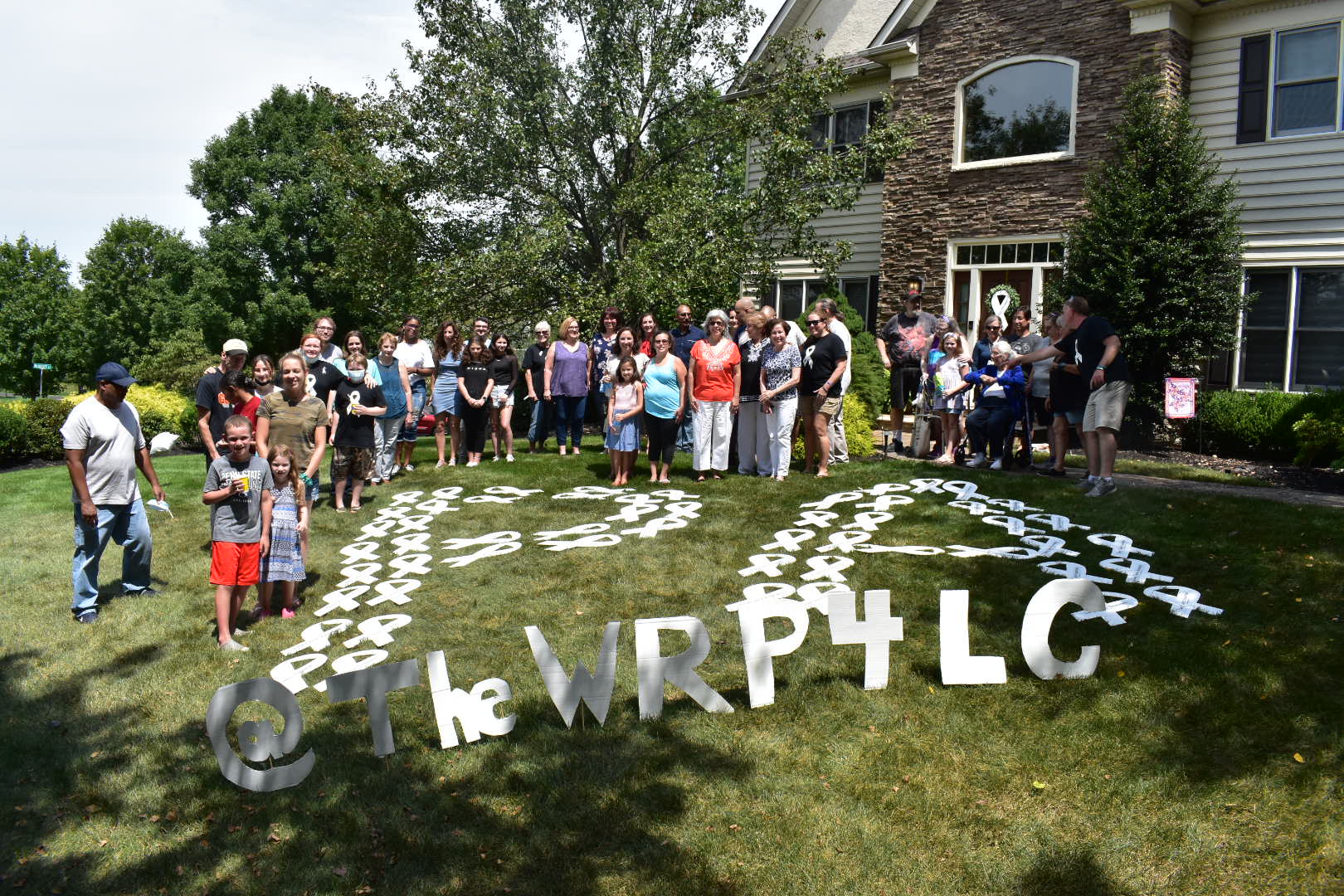
→Back to The White Ribbon Project Stories
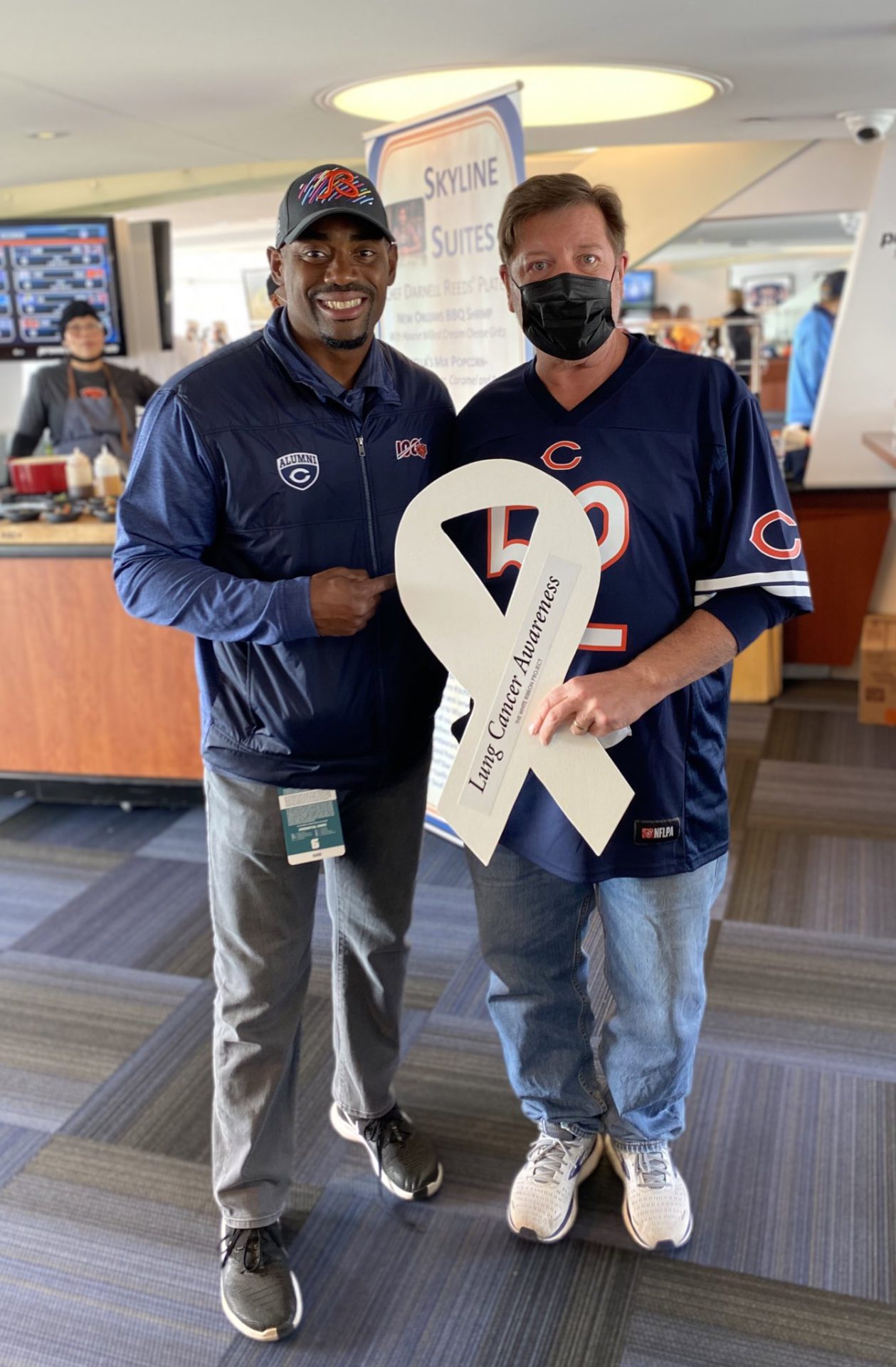
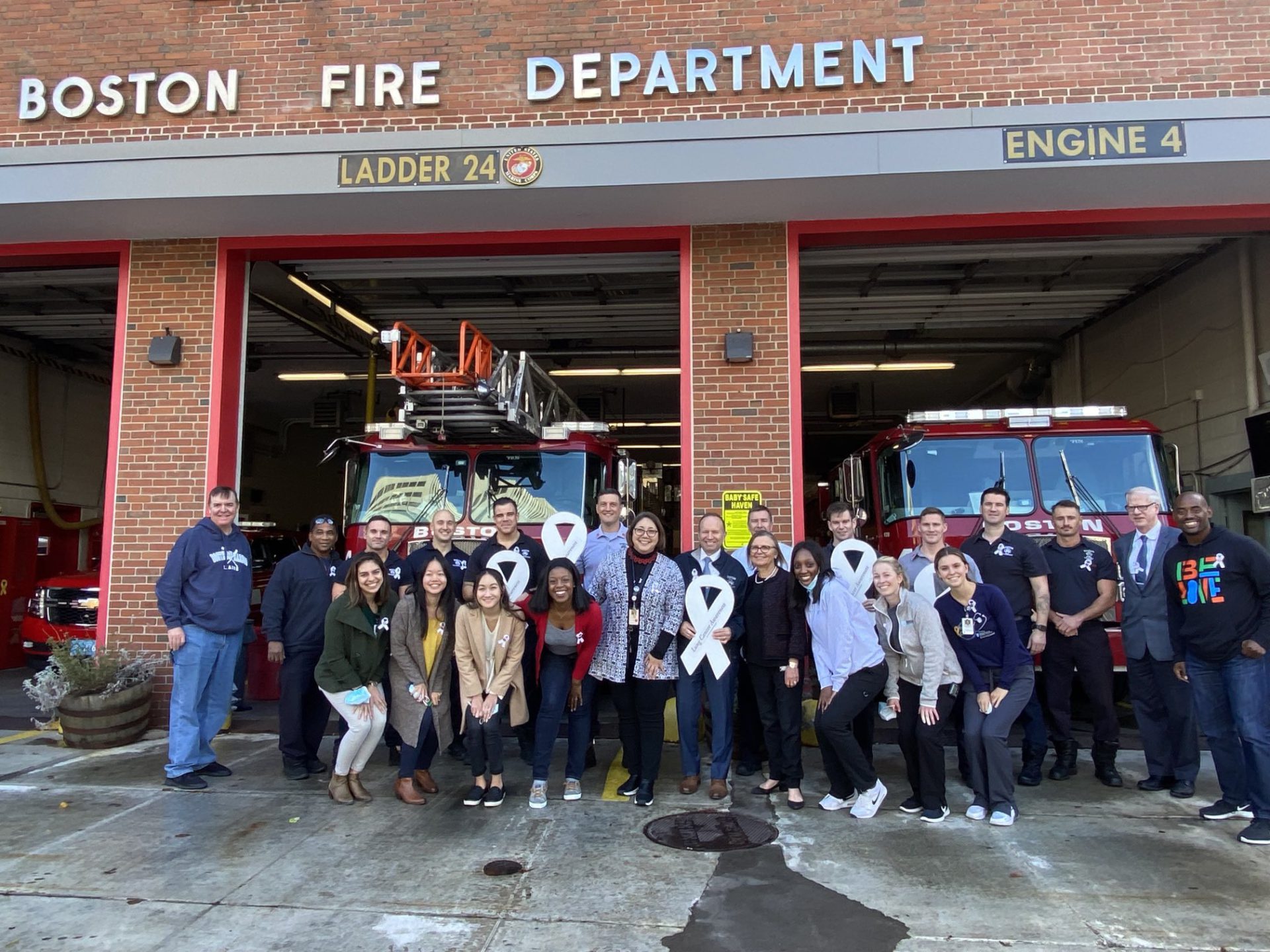
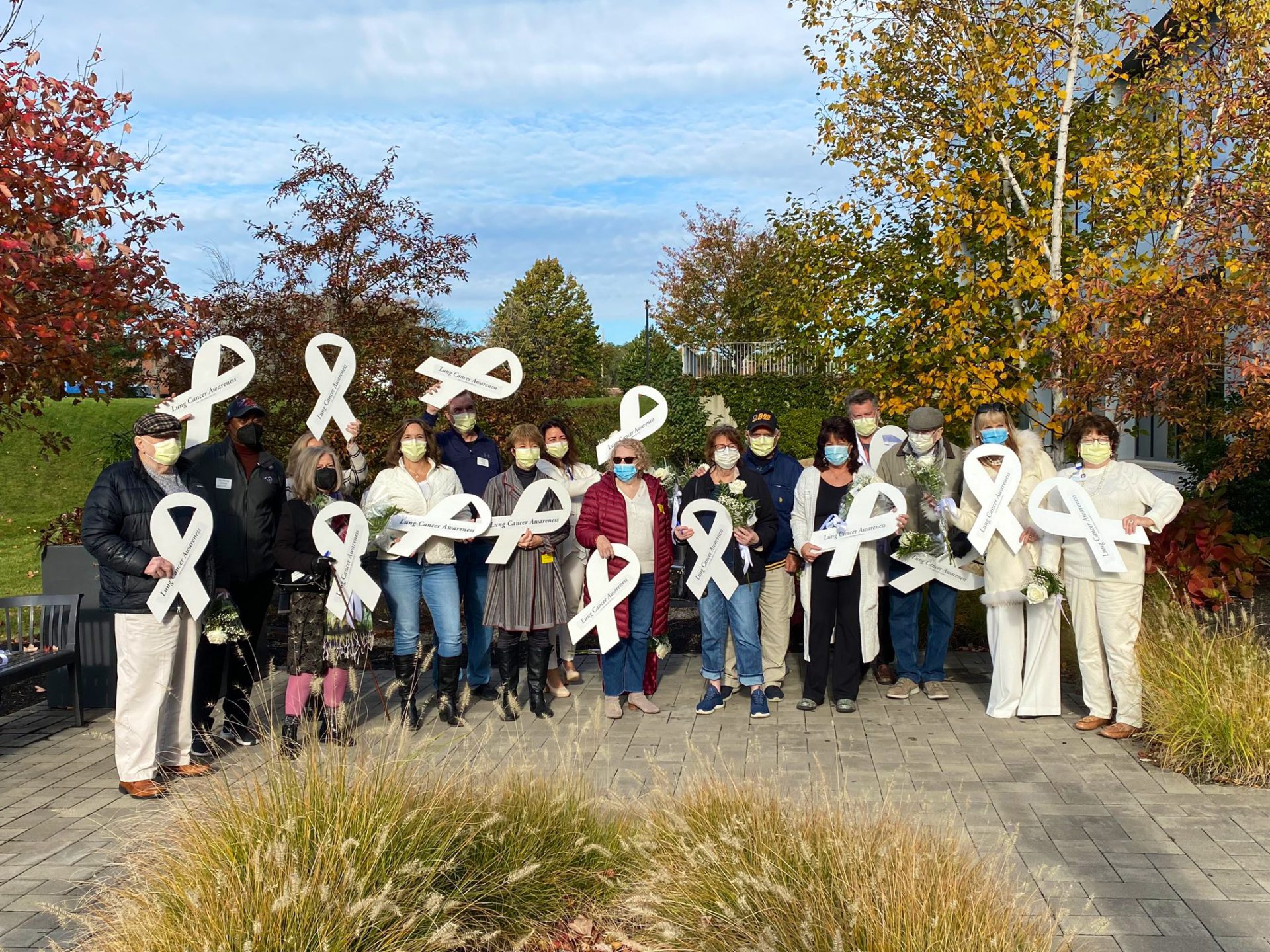
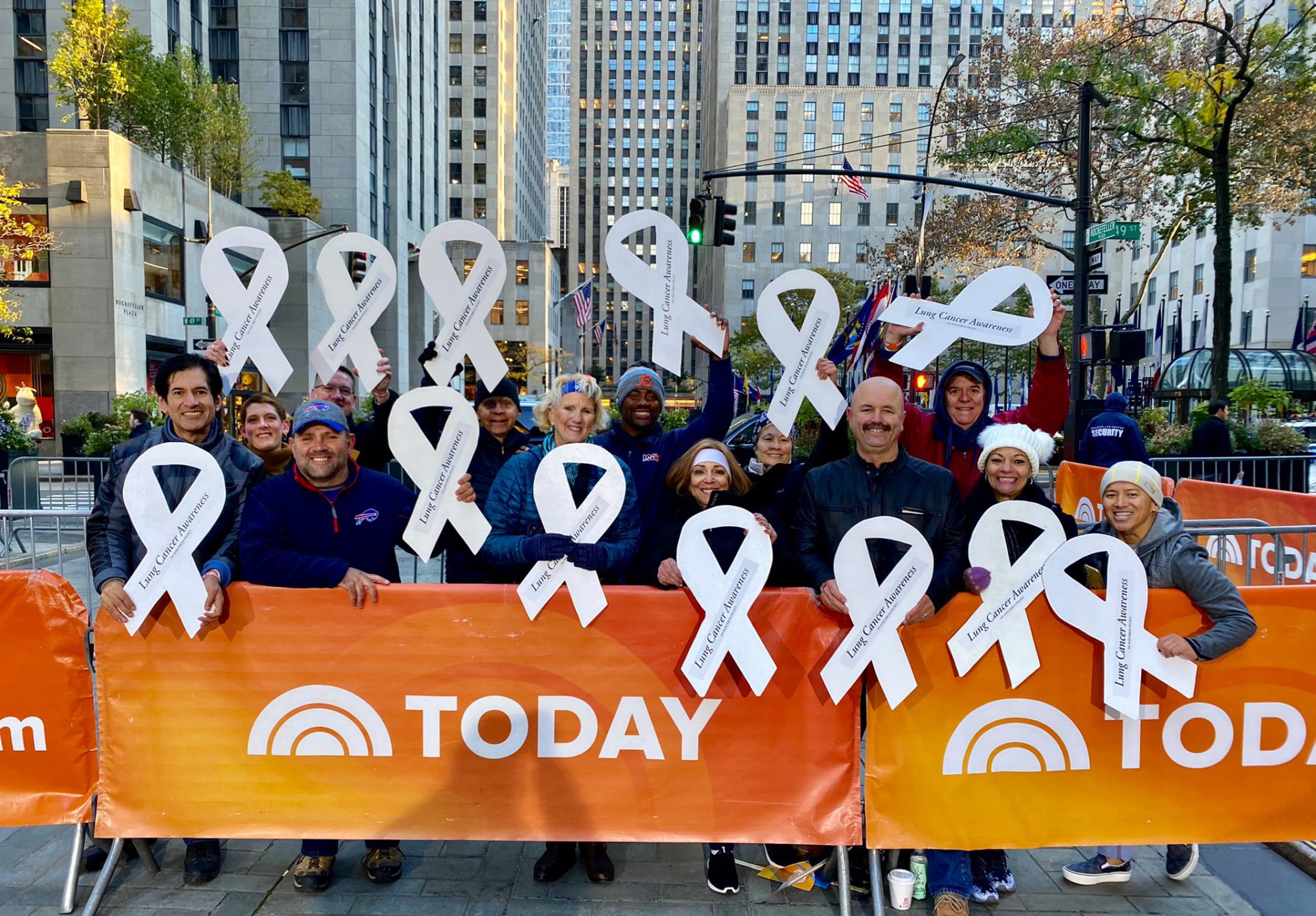
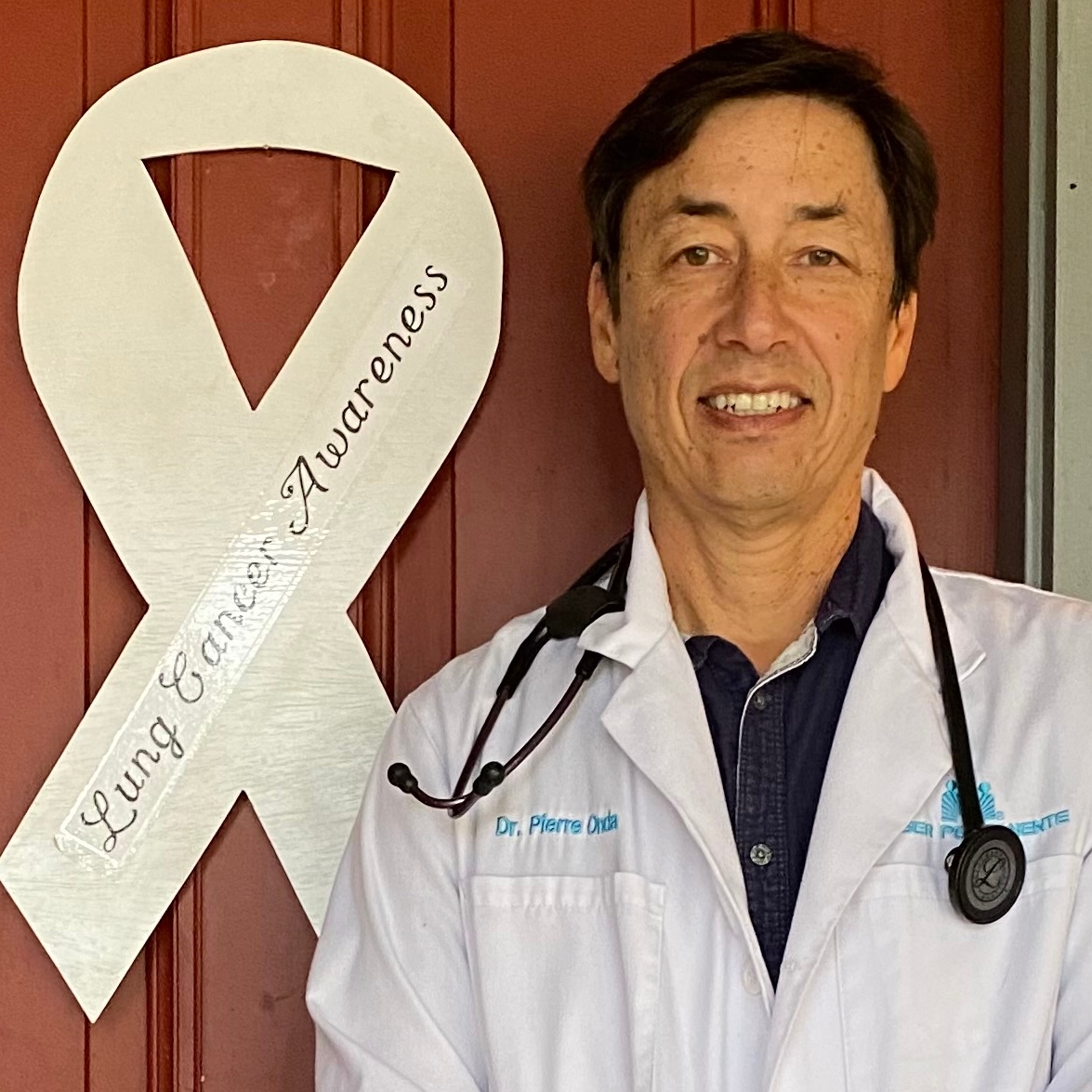
Inspired by Pierre's story?
Share your story, too!
More non-small cell lung cancer (NSCLC) stories
Laura R., Non-Small Cell Lung Cancer, ALK+, Stage 4 (Metastatic)
Symptoms: Persistent cough, fatigue, bone pain
Treatments: Targeted therapies (tyrosine kinase inhibitors or TKIs, including through a clinical trial)
Drea C., Non-Small Cell Lung Cancer, ROS1+, Stage 4 (Metastatic)
Symptoms: Swollen ankle resulting from a deep vein thrombosis or blood clot, mysterious bruising, extreme weight loss, persistent shortness of breath, rattling sound coming from the throat while breathing
Treatments: Radiation therapy, chemotherapy, targeted therapies
Lysa B., Non-Small Cell Lung Cancer, ROS1+, Stage 4 (Metastatic)
Symptom: Severe but intermittent back pain
Treatments: Chemotherapy, radiation therapy, targeted therapy (including through a clinical trial), surgeries (lung resection, metastatic spine tumor surgery)
Ashley C., Non-Small Cell Lung Cancer, HER2+, Stage 4 (Metastatic)
Symptoms: Fatigue, breathlessness, persistent back pain, multiple rounds of bronchitis
Treatments: Chemotherapy, targeted therapy
